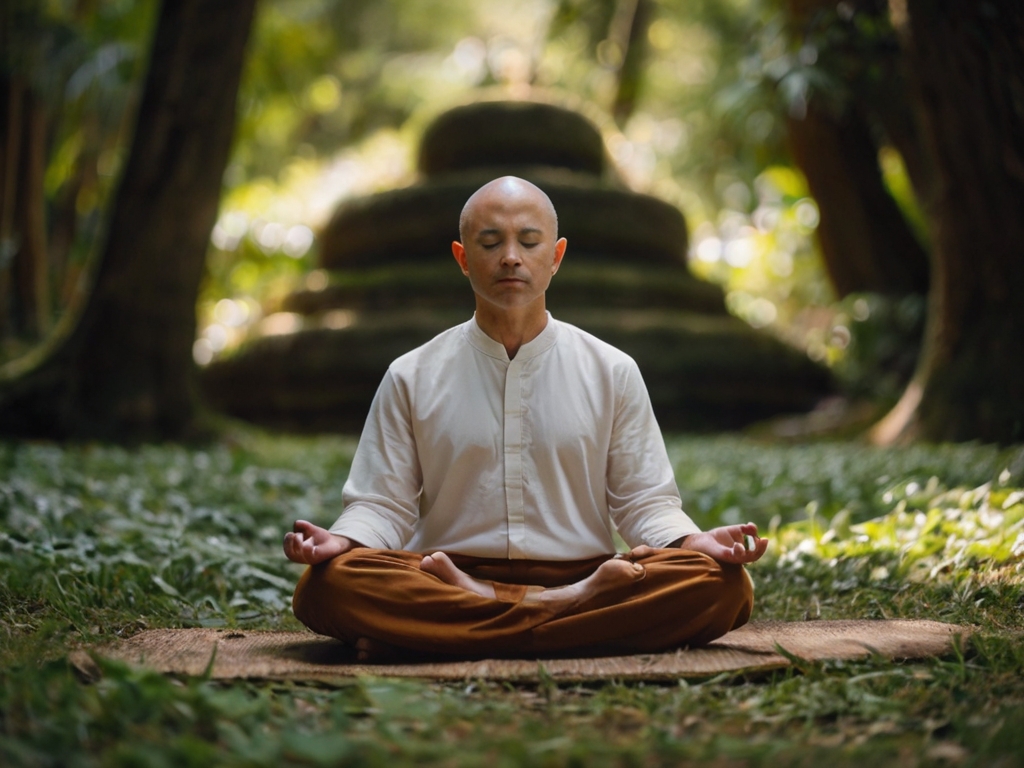10 Simple Self-Care Practices for a Healthier Mind and Body
Self-care is an essential aspect of maintaining overall well-being. In today’s fast-paced world, it’s easy to neglect our mental and physical health amidst the demands of work, family, and other responsibilities. However, incorporating simple self-care practices into your daily routine can have profound effects on your mental clarity, emotional resilience, and physical vitality. In this article, we’ll explore ten simple self-care practices that you can easily integrate into your life to nurture a healthier mind and body.

Understanding Self-Care
Self-care encompasses any deliberate action taken to preserve or improve one’s health and well-being. It involves recognizing your own needs and taking steps to fulfill them, whether they are physical, emotional, social, or spiritual. Contrary to popular belief, self-care is not selfish; it is an essential aspect of maintaining a balanced and fulfilling life.

Importance of Self-Care for Mental and Physical Health
Prioritizing self-care is crucial for maintaining optimal mental and physical health. When we neglect our own needs, we become more susceptible to stress, anxiety, and burnout. Chronic stress can wreak havoc on our bodies, leading to a host of physical ailments such as high blood pressure, weakened immune function, and digestive issues. Additionally, neglecting self-care can contribute to mental health issues such as depression and anxiety.
10 Simple Self-Care Practices
Establishing a Routine
Creating a daily routine can provide structure and stability to your life, reducing stress and increasing productivity. Here are two simple practices to incorporate into your routine:
Waking Up Early
Starting your day early allows you to enjoy quiet moments of solitude and set a positive tone for the rest of the day. Use this time to engage in activities that nourish your mind and body, such as meditation, journaling, or exercise.
Prioritizing Sleep
Getting an adequate amount of sleep is essential for cognitive function, mood regulation, and overall health. Aim for seven to nine hours of quality sleep each night by establishing a relaxing bedtime routine and creating a comfortable sleep environment.

Exercise Regularly
Physical activity is not only beneficial for your physical health but also your mental well-being. Engage in regular exercise, whether it’s going for a brisk walk, practicing yoga, or hitting the gym. Exercise releases endorphins, neurotransmitters that promote feelings of happiness and reduce stress.
Healthy Eating Habits
Maintaining a balanced and nutritious diet is fundamental to supporting your overall health. Focus on consuming whole, unprocessed foods rich in vitamins, minerals, and antioxidants. Prioritize fresh fruits and vegetables, lean proteins, whole grains, and healthy fats.

Mindfulness and Meditation
Practicing mindfulness and meditation can help quiet the mind, reduce stress, and increase self-awareness. Here are two simple practices to incorporate into your daily routine:
Deep Breathing Exercises
Take a few moments each day to engage in deep breathing exercises. Focus on inhaling deeply through your nose, allowing your lungs to expand fully, and exhaling slowly through your mouth. Deep breathing promotes relaxation and calms the nervous system.
Practicing Gratitude
Cultivate an attitude of gratitude by reflecting on the things you’re thankful for each day. Keep a gratitude journal or simply take a few moments before bed to mentally acknowledge the blessings in your life. Practicing gratitude can shift your focus from negativity to positivity, improving your overall outlook on life.
Setting Boundaries
Learn to say no to commitments and obligations that drain your energy or cause undue stress. Setting healthy boundaries is essential for preserving your mental and emotional well-being and ensuring that your needs are met.

Disconnecting from Technology
In today’s digital age, it’s easy to become consumed by technology and constant connectivity. Take regular breaks from screens, whether it’s your phone, computer, or television. Engage in activities that don’t involve technology, such as spending time outdoors, reading a book, or connecting with loved ones face-to-face.

Engaging in Hobbies
Make time for activities that bring you joy and fulfillment, whether it’s painting, gardening, playing music, or cooking. Engaging in hobbies allows you to express yourself creatively and recharge your mental batteries.
Seeking Support
Don’t hesitate to reach out to friends, family, or a therapist when you’re feeling overwhelmed or struggling with your mental health. Seeking support is a sign of strength, not weakness, and can provide valuable insight and perspective during challenging times.
Getting Outside
Spending time in nature has been shown to have numerous benefits for mental and physical health. Take advantage of the healing power of the great outdoors by going for a hike, picnicking in the park, or simply taking a leisurely stroll through your neighborhood.
Practicing Self-Compassion
Be kind to yourself, especially during difficult times or when facing setbacks. Treat yourself with the same compassion and understanding that you would offer to a friend in need. Practice self-care without judgment or criticism, knowing that you deserve love and care just as much as anyone else.

Conclusion
Incorporating simple self-care practices into your daily routine is essential for nurturing a healthier mind and body. By prioritizing your own needs and well-being, you can enhance your quality of life, reduce stress, and cultivate a greater sense of happiness and fulfillment.

Discover The 8-Minute Stretching Flows And Achieve Full Flexibility Or Relieve Your Back, Hips And Shoulders In The Next 30 Days
Regardless Of Your Age, Body Type Or Your Current Physical Condition, Click here
FAQs
- How do I know which self-care practices are right for me?
- Self-care is highly personal, so it’s essential to experiment and find what works best for you. Pay attention to how different activities make you feel, and prioritize those that bring you joy and relaxation.
- Is self-care selfish?
- No, self-care is not selfish. Taking care of your own needs allows you to show up as your best self in other areas of your life, such as work, relationships, and community involvement.
- I don’t have much time for self-care. What can I do?
- Even small acts of self-care can make a significant difference. Try incorporating brief mindfulness exercises, such as deep breathing or gratitude practice, into your daily routine.
- How can I make self-care a priority in my busy schedule?
- Schedule self-care activities into your calendar just like you would

